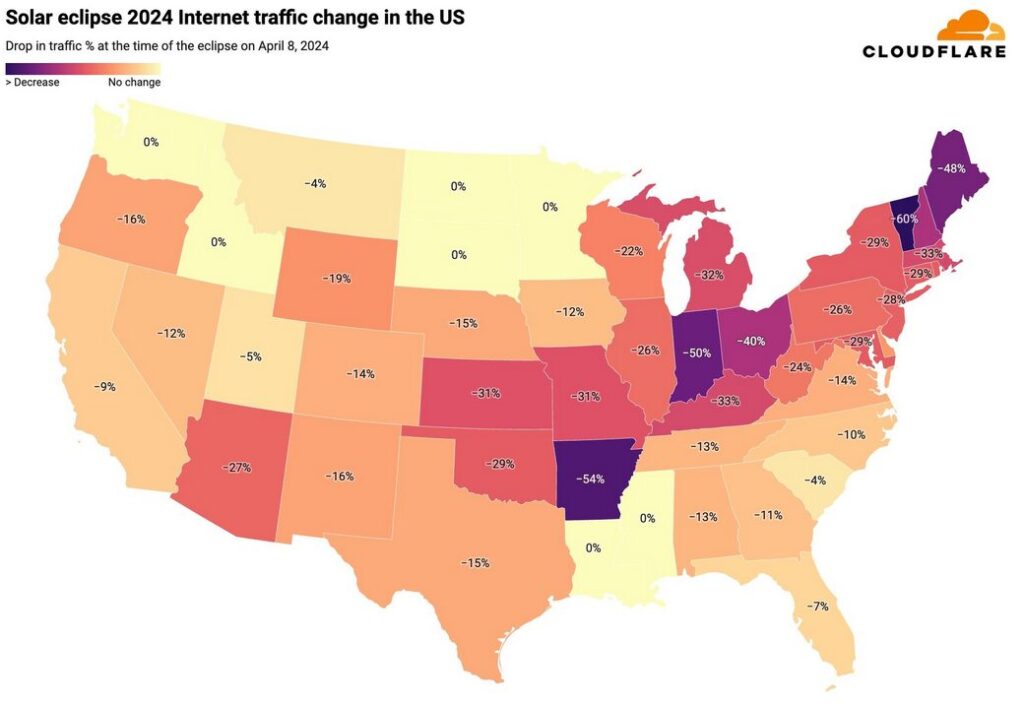It is also a way to see the impact of the solar eclipse across the Atlantic. For a while, Internet traffic fell in the USA as the Moon’s shadow passed over the Earth. Declines were also observed in Mexico and Canada.
That’s it, the solar eclipse of April 8, 2024 has passed. North America was able to enjoy an exceptional spectacle, as evidenced by the numerous, sometimes very sumptuous, photos of the event. France, alas, was not on the trajectory, at least that was true for the mainland – some French overseas territories were able to benefit from it.
The Americans have temporarily given up on the Internet
Across the Atlantic, the occurrence of this space ballet has taken on the appearance of a real societal event. We saw this upstream, with reservations on Airbnb, which were concentrated on April 8 on the band where the solar eclipse passed. We see it downstream today, with surprising measurements shared the next day by Cloudflare.
This American company, specializing in providing various services to websites, noticed a notable drop in Internet traffic when the Moon obscured the Sun. The decline is significant: it was estimated at 8% across the country. But in certain directly exposed federal states, the fall was sometimes exceptional.

Some examples: Internet traffic in Arkansas dropped 54%. In Indiana, the decline is 50%. In Ohio, there was a 40% drop, and 48% in Maine. The record goes to Vermont, with a drop of 60%. In all, 11 states had a drop of at least 30%. The strongest falls correspond to the passage of the eclipse.
Conversely, a small group of states did not appear to change their habits at all — this is the case of Washington, Idaho, North Dakota, South Dakota, Minnesota, Louisiana and Mississippi. The same goes for the Hawaiian archipelago, too far away. Cloudflare also provides measurements for Canada and Mexico, which have also had the experience.
Depending on the locality, the falls varied. On the Mexican side, the states of Mexico, Sinaloa, Coahuila and Durango experienced declines of 22, 34, 43 and 57% respectively. For Canada, the main measures concern Ontario (-21%), Quebec (-27%), Nova Scotia (-27%), Newfoundland and Labrador (-32%), New Brunswick (-40%) and Prince Edward Island (-48%).
The next solar eclipse is expected for October 2024. Again, it will be inaccessible from France. It will mainly take place over the Pacific Ocean. We can note an overview of the southern tip of Latin America, mainly in Chile and Argentina. It will end its course in the South Atlantic.


Do you want to know everything about the mobility of tomorrow, from electric cars to e-bikes? Subscribe now to our Watt Else newsletter!
